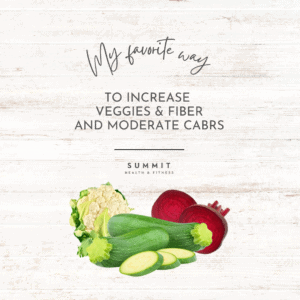
Science of Oversleeping
There have been some articles published that have stated that getting too much sleep can lead to greater risk of heart disease or death. If you’re someone who regularly sleeps more than eight hours, articles like this can make you question if you’re getting too much sleep and if it’s harmful to you.
Today we are going to look at the science of too much sleep and if/when it is something to worry about.
(Spoiler: Chances are, you have nothing to worry about.)
How much is too much sleep?
On average, most people need somewhere between seven and nine hours of sleep each night. But that’s an average, it’s not this rule that applies to everyone to acquire good health.
You can start moving out either direction – some people need more sleep than that, some don’t need as much.
Sleepers basically fall into three main categories.
1. People who need fewer than 7 hours of sleep
Referred to as Natural Short Sleepers, these genetically-gifted folks don’t need as much sleep as the average person.
They are blessed with increased levels of a hormone called orexin that allows them to feel energetic and clear-headed with just five to six hours of sleep.
Here’s an important caveat, though. Plenty of people who get less than seven hours aren’t Natural Short Sleepers. Rather, they skimp on sleep for other reasons, ranging from bedtime procrastination to parenthood to an “always on” work ethic.
If you’re not genetically a Natural Short Sleeper, skimping on sleep likely means you’ll either…
▶ feel like garbage the next day
▶ won’t feel like garbage the next day—but only because you’re so used to the effects of sleep deprivation that you’ve no longer remember what it feels like to be well rested
If that’s not enough, over time, your risk for heart disease, cancer, and type 2 diabetes can go up as well.
We’ll talk more about the connections between sleep and health in a bit.
2. People who need more than 9 hours of sleep
Due to their genetic makeup, Natural Long Sleepers usually need 10, 11, or 12 hours in order to feel refreshed. Their genetics also cause them to feel tired more quickly than other people.
Included in this longer-sleeping category regardless of genetics are children, teenagers, and many young adults, all of whom need more sleep so their bodies can continue to develop.
Certain prescription medications can also increase sleep time.
In some cases, the sleepiness is reduced once the person gets used to the medication, and usually this effect is reversed when the person stops the medication.
3. People who need 13+ hours of sleep
Some people sleep 14, 17, 24 or more hours with very little interruption, and they still wake feeling tired.
If you find you are one of these people, it might be an indication that there is something wrong with your sleep quality, not necessarily the quantity. For example, sleep disorders like sleep apnea and insomnia can disrupt sleep, causing people to wake feeling unrefreshed.
A variety of health conditions—including epilepsy, Parkinson’s disease, and depression—can also lead to hypersomnia, which is the inability to stay awake. Narcolepsy, which is another hypersomnia condition, causes people to feel tired all the time, leading them to fall asleep at inappropriate and dangerous times, such as while having a conversation or driving a vehicle. These disorders require medical treatment.
If you suspect any of the above is true for you, please mention it to your doctor.
What happens when you sleep too much?
For the average person, if they are sleeping, they probably need to be sleeping. (Talk about PMR with athletes).
That’s because our bodies all have a sleep set point—referred to as “homeostasis” – which we’ve talked about before when talking about stress. Get too little sleep one night and your body will respond by craving more sleep the next. Alternatively, you may have noticed: If you collect more sleep than usual by sleeping in on a weekend, you’ll likely find yourself wide awake later that evening.
There are, however, some exceptions. We’ll talk about those a little later.
Does oversleeping harm your health?
Despite all of the scary headlines, it’s likely that long sleep itself poses little to no health problems. That’s because, in people who sleep more than most, it’s often the result of a chronic health problem, not the cause.
Occasionally, the problem is bi-directional, meaning the health problem disturbs sleep, which worsens the health problem, which leads to worsened sleep, and the cycle continues.
These health problems include:
▶ Sleep disorders like sleep apnea (breathing repeatedly stops during sleep) and narcolepsy (severe daytime sleepiness and sleep attacks)
▶ Diabetes
▶ Hypothyroidism
▶ Depression
▶ Chronic fatigue syndrome
▶ Heart disease
For the above conditions, it’s important to note that oversleeping doesn’t cause them. Rather, it’s a symptom of them.
For example, sleep apnea repeatedly wakes people, often for brief moments, during the night, which can lead to hypersomnia (if you remember from before, that’s excessive sleepiness during the day) as well as a strong desire to stay in bed longer than eight hours or to take a nap during the afternoon.
When medical problems disturb sleep, it takes a person a longer period of time to be sufficiently recovered.
If you don’t think any of the scary stuff we just mentioned is going on and you regularly get more than 10 hours, and you feel energetic and clear headed during the day, that’s great! Enjoy your sleep – you most likely have nothing to worry about.
On the other hand, if you spend your days craving a nap—tired, brain fogged, irritated, and have a hard time making decisions—there may be an underlying issue worth exploring with your doctor.
4 Sleep Habits That Improve Sleep Quality
Hearing all of this and knowing sleep quality might be lacking for you, I wanted to leave you with a few tips to improve sleep quality.
- Set up your bedroom to be just a sleep oasis. When your sleep environment makes you feel safe and cozy, it’s easier for your brain to relax, allowing you to sleep more deeply.
- Block out light. Your circadian rhythm responds to changes in light. For most people, the darker the room, the better they sleep. If you can’t get your room as dark as needed, consider experimenting with a sleep mask that covers your eyes and blocks out light.
- Adjust the temperature. In addition to light, your circadian rhythm also responds to changes in temperature, making you feel sleepy as your body cools down. Taking a hot bath or shower before bed can trick your body that it’s time to sleep as it’s cooling down. Another tactic: Set your thermostat so it reduces the ambient temperature by a couple degrees at night.
- We have a good handful of ladies who tune in each week who are going through the lovely experience of menopause. If hot flashes are keeping you awake, consider investing in cooling mattress pads or using a fan.
- Consider sleeping alone. I’m not advocating for kicking your spouse out of bed, but trying to avoid things like your pet or child sleeping in the bed with you can help limit the number of disruptions.
Can sleeping too much make you tired?
I did want to touch on one thing I sometimes hear when people get extra sleep. They report feeling even more tired when they sleep in on the weekends than they do during the weekday when they’re up early.
There are two likely reasons for this phenomenon.
- Oversleeping is often a response to under-sleeping
Some people sleep 10+ hours on the weekends because they’re sleeping six or fewer hours during the week. Your body is going to ask for more sleep where it knows it can get it. I’m not going to go much into sleep debt as I continue to come across conflicting information from seemingly reputable sources. To keep it simple, if you are tired, you probably need sleep. If you’re getting enough sleep and you’re still tired, consider using some tips to improve your sleep quality. If nothing changes there, chat with your doctor about looking into it further.
- Sleeping in can disrupt sleep-wake signaling.
If you usually wake at 6 am, sleeping in on the weekends will disrupt your brain’s ability to release all of the brian chemicals needed for that refreshed, ready-to-go feeling.
Although, this is less related to the amount of sleep and more related to the time of day that you’re sleeping, and things that cue your body to wake up or wind down
Among those timing cues:
✅ Overhead and outdoor light that sets your brain’s circadian clock – being awake when it’s dark or asleep when it’s light can make it very hard to find a rhythm that cues your body appropriately to feel tired or alert
✅ The blaring noise of your alarm clock triggers a release of cortisol and other alertness chemicals (aka stress chemicals)
✅ Stressful situations that haven’t been resolved. This is one that’s been on my mind a lot lately and why meditation might be worth a shot. If we don’t give ourselves stillness during the day to process these things, our brains will take our stillness while we’re in bed or in the shower. If you want some peace and quiet at bed time, consider journaling or meditating so your brain can dump what it needs to.
✅ Caffeine – when we sleep in, this delays everything. Your 6am cup of coffee is now at 9am, and your body’s rhythm is delayed three hours, so now when it’s Sunday night and it’s time to wind down, you’re wired.
✅ Breakfast – we worked hard to sync up our hunger cues with our eating schedule, which is then delayed, and might cause us to still be digesting when we go to bed which can cause disruptions with sleep.
✅ That feeling of being rushed as you race out the door – now that you’ve slept in, you might feel a little crunched for time the rest of the day.
When you occasionally oversleep, you deprive your brain of some or all of those cues. Some of the wakeup signals might not take place at all. Others, like overhead lighting and caffeine, take place hours later than your brain is used to getting them.
End result: you feel tired.
How can you tell if you’re sleeping too much?
During the day, if you sit down to read a book or watch a show, do you feel a strong urge to nod off?
If the answer is yes, it’s an indication that you’re not getting enough restorative sleep at night, which may be a sign of a sleep disorder or sleep quality issue.
On the other hand, if you’re clocking a lot of bedtime hours and feel energized during the day, 10+ hours could just be your natural sleep pattern.
If you are a long sleeper and feel good, don’t worry about it. Do your best to spend the amount of time in bed you need.
Watch Coach Lauren’s Live Sunday with Summit Health Here:
Join our Facebook group to see more live trainings like this one.





